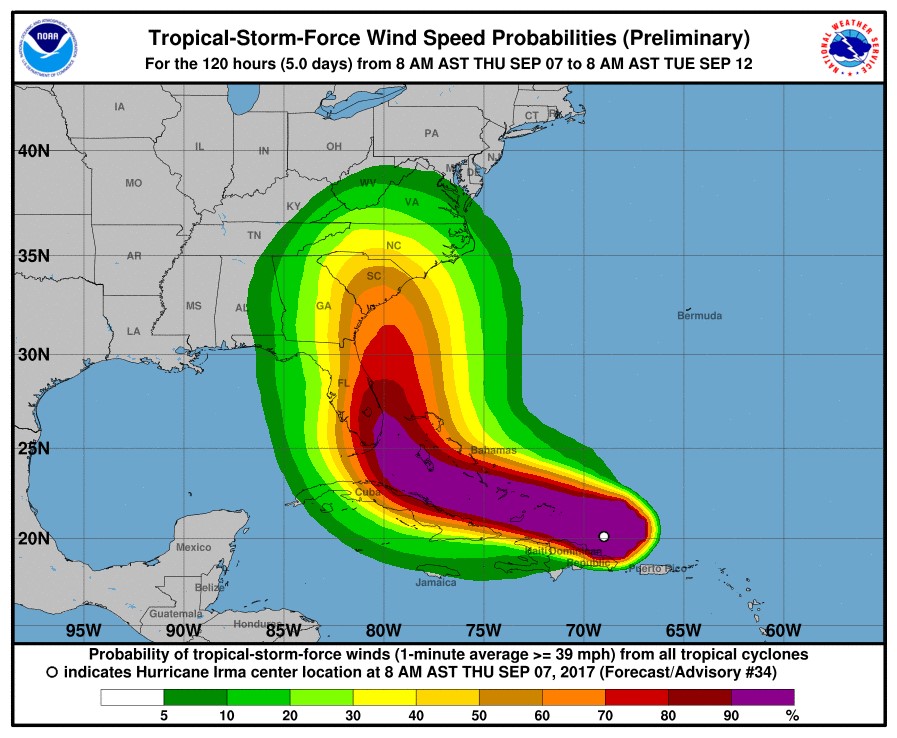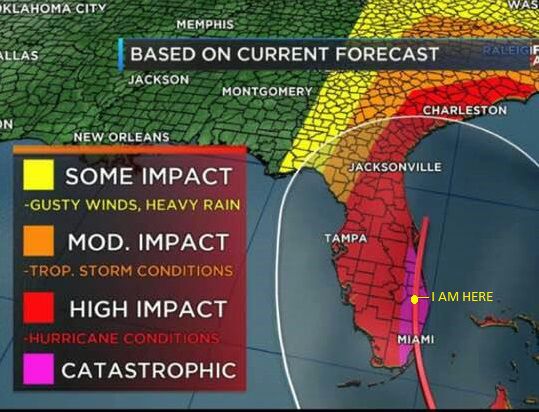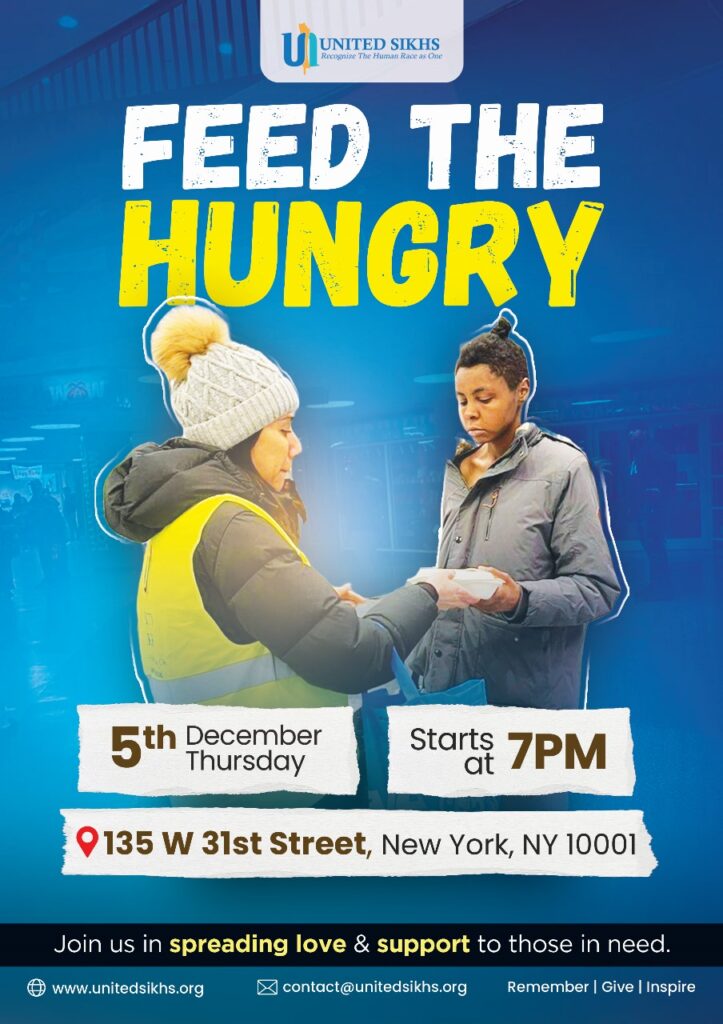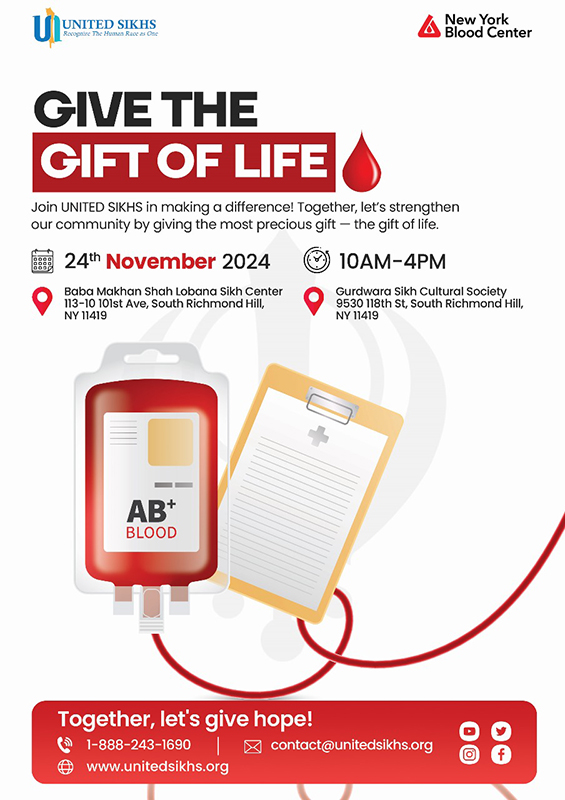|
|
 |
|
| Irma – A Category 5 storm that has kept sustained winds of 180 mph longer than any other on record — knocked out electricity a day earlier to more than 1 million customers in Puerto Rico as it churned off the US territory, and devastated smaller islands, including Barbuda and the British Virgin Islands. |
|
| UNITED SIKHS continues to monitor the track and potential impact Hurricane Irma will have this weekend. It is expected to produce a dangerous storm surge with life threatening coastal flooding and strong winds. |
|
| Outer bands of the unusually powerful Hurricane Irma battered parts of the Dominican Republic and Haiti today morning, threatening serious flooding a day after leaving severe destruction and at least 10 dead across a string of Caribbean islands to the east. |
|
| This storm carries the potential for coastal flooding; please review the following guidelines if you are in an area prone to flood conditions: |
Preparedness and Safety Guidelines:
- There is the potential for flooding with this storm. Driving through a flooded area can be extremely hazardous and almost half of all flash flood deaths happen in vehicles. When in your car, look out for flooding in low-lying areas, at bridges and at highway dips. As little as six inches of water may cause you to lose control of your vehicle. 4 to 8 inches of rain are expected, with 10 inch totals in isolated locations.
- If you encounter floodwaters, remember – turn around, don’t drown.
- Be familiar with evacuation routes, have a family communications plan, keep a battery-powered radio handy and have a plan for pets. Visit www.ready.gov or www.listo.gov to learn these and other preparedness tips for tropical storms.
- Know your evacuation zone and be sure to follow the direction of state, local, and tribal officials if an evacuation is ordered for your area.
- If you have a National Flood Insurance Program (NFIP) flood policy, you may be eligible for reimbursement of actions taken to protect your property. Call your insurance agent to find out more.
- Get to know the terms that are used to identify severe weather and discuss with your family what to do if a watch or warning is issued.
|
| (Courtesy:http://fema.gov) |
|
|
 |
|
Supplies list needed to be safe and informed during the hurricane.
- Water – at least a 3-day supply; one gallon per person per day
- Food – at least a 3-day supply of non-perishable, easy-to-prepare food
- Flashlight
- Battery-powered or hand-crank radio(NOAA Weather Radio, if possible)
- Extra batteries
- First aid kit
- Medications (7-day supply) and medical items (hearing aids with extra batteries,glasses, contact lenses, syringes, cane)
- Multi-purpose tool
- Sanitation and personal hygiene items
- Copies of personal documents (medication list and pertinent medical information, proof of address, deed/lease to home, passports, birth certificates, insurance policies)
- Cell phone with chargers
- Family and emergency contact information
- Extra cash
- Emergency blanket
- Map(s) of the area
- Baby supplies (bottles, formula, baby food, diapers)
- Pet supplies (collar, leash, ID, food, carrier, bowl)
- Tools/supplies for securing your home
- Insect repellent and sunscreen
|
|
| Click on http://www.nhc.noaa.gov/ to get latest on the hurricane |
|
- Please see if you are in the evacuation zone and locate the nearest shelters.
- In case of emergency, please call 911.
- If you would like to volunteer to assist in the post relief efforts please contact us at : 1-888-243-1690 or at 407-864-2124 (S. Baljeet Singh). You can also fill the form here to join our relief projects.
- Make sure you have visited the ready.gov site to prepare for Hurricane Irma.
|






